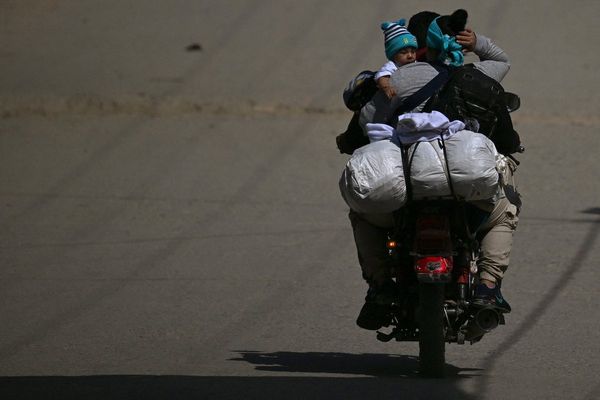
The Nobel Prize in Physiology or Medicine has been awarded to James P. Allison and Tasuku Honjo for discoveries that led to a new way to treat cancer by targeting the body’s immune system rather than the tumor.
The work of Drs. Allison and Honjo formed the backbone of new generations of blockbuster cancer immunotherapy drugs that are transforming treatment of some of the most intractable cancers. Though not all patients respond, these drugs can have a dramatic impact on advanced cases, most particularly melanoma—a form of skin cancer—and lung cancer.
Their work constitutes “a landmark in our fight against cancer,” the Swedish Academy—the body responsible for awarding the prize—said in announcing the awards.
Tumor cells have ways of evading destruction by the body’s immune system. The Nobel-winning research uncovered ways to release the brakes on immune cells known as T cells, allowing them to attack cancers.
Dr. Allison, chairman of immunology at the University of Texas MD Anderson Cancer Center, realized that he could develop a way to block a protein called CTLA-4 on T cells that acts as a brake. The research ultimately led to the first of the new immunotherapy drugs, Bristol-Myers Squibb Co.’s Yervoy. The U.S Food and Drug Administration approved Yervoy in 2011 to treat the deadly skin cancer melanoma. The drug generated global sales of $1.2 billion for Bristol-Myers in 2017.
A similar concept was the basis behind the next wave of drugs, targeting a protein called programmed death receptor 1, or PD-1, which also acts as a brake on immune-system cells. Dr. Honjo, a professor at the department of immunology and genomic medicine at Kyoto University, realized that PD-1 brakes immune-system cells in a different manner from other so-called “checkpoints.”
He felt that an antibody to PD-1 might complement the CTLA-4 inhibitors, and perhaps have fewer side effects, according to a presentation of the Nobel-winning work at the ceremony in Stockholm today.
The FDA began approving PD-1 inhibitors in 2014, including Merck & Co.’s Keytruda and Bristol-Myers’ Opdivo. Drugs targeting PD-1 have been approved to treat a range of tumors, including melanoma and lung cancer.
Keytruda is the drug that former U.S. President Jimmy Carter said in 2015 he received to treat melanoma that had spread to other parts of his body. After treatment, Mr. Carter said imaging scans showed no signs of cancer.
Dr. Honjo said at a news conference at Kyoto University that he was “extremely honored” to receive the award. Dr. Honjo, who has received multiple awards in Japan, said that he appreciates the value of his work when recovering patients thank him for developing the treatment.
Asked what he would like to do now, the fit-looking Dr. Honjo said he was working hard to shoot his age in golf. He is 76 now, so that would mean shooting a 76 or lower. “It is my greatest goal,” he said. “I play golf without fail every week and practice putting at home.”
More seriously, he said cancer treatment was still a “work in progress” and predicted that by the end of this century, cures would be found for patients not helped by current therapies.
At a press conference in New York City after he won, Dr. Allison said that while he has a personal family history with cancer, “I did not get into this to cure cancer.” He described himself as a basic scientist, focused on understanding the mechanism of the immune system. “I wanted to know how T cells worked,” he said.
He said his current work is focused on trying to understand why the drugs work and why they fail. “We still have a lot of hard work to do,” he said.
When the Nobel ceremony began at 5:30 a.m. Eastern Daylight Time, the committee members said they hadn’t yet been able to reach Dr. Allison by phone to inform him he had won science’s highest honor. Dr. Allison was in a hotel room in New York City, where he is attending a cancer conference. He said his son was the one who first told him, followed by a call from a reporter in Sweden, and friends banging on his hotel door at 6 a.m. and celebrating with bottles of champagne. “It was tremendous,” he said.
Dr. Allison says he knows Dr. Honjo, his fellow Nobel winner, very well, and that they shared another important science prize, the Tang Prize. Dr. Honjo plays golf, while Dr. Allison doesn’t, he said, but they enjoy a cordial relationship and like to talk science together.
Dr. Allison has spoken publicly about his personal connection to cancer. His mother died of lymphoma when he was a child, and he lost two uncles, a brother, and friends to the disease. He is a cancer survivor himself, of prostate and melanoma cancer, and is currently undergoing treatment for bladder cancer.
For part of his ongoing work, he and his wife and fellow M.D. Anderson co-investigator, Padmanee Sharma, are collecting tissue from patients before and after they get immunotherapy treatments, to study why some people respond and others don’t. He said researchers suspect there may be a dozen checkpoints that play a role, although not all of them are equally important. In prostate cancer, he says, they are studying combinations of checkpoint inhibitors. “We have a pretty good idea on how to make some cancers respond,” he said.
Besides science, Dr. Allison’s key passion is music. He plays the harmonica in a band with other doctors and researchers called the Checkpoints. One of Dr. Allison’s proudest moments, say his friends, was getting to play harmonica on stage in front of 70,000 people with country singer Willie Nelson.
Lewis Lanier, chairman of the department of microbiology and immunology at the University of California San Francisco, and a longtime friend of Dr. Allison, said the drugs that emerged from Dr. Allison’s research happened not only because of his scientific discoveries but because of his persistence. “He spent 10 years banging on the doors of many pharmaceutical and biotech companies saying this concept will work,” Dr. Lanier said.
At the time the two scientists were making their breakthroughs, the prevailing notion in the field was that chemotherapy, radiation and surgery are the ways to treat cancer. “Immunology was largely ignored and not taken seriously,” said Dr. Lanier.
The announcement of the prize begins a week of accolades bestowed by the academy for endeavors in the fields of science, economics and the promotion of peace.
The Nobel for literature was canceled this year—for the first time since World War II—after the academy said it needed time to repair the damage from a protracted scandal over allegations of sexual assault and financial impropriety. Two literature prizes will be awarded next year instead.
The Frenchman at the center of the scandal was sentenced by a Swedish court Monday to two years in prison for rape.
--Denise Roland and Alistair Gale contributed to this article.
Write to Amy Dockser Marcus at amy.marcus@wsj.com, Peter Loftus at peter.loftus@wsj.com and Joanna Sugden at joanna.sugden@wsj.com







